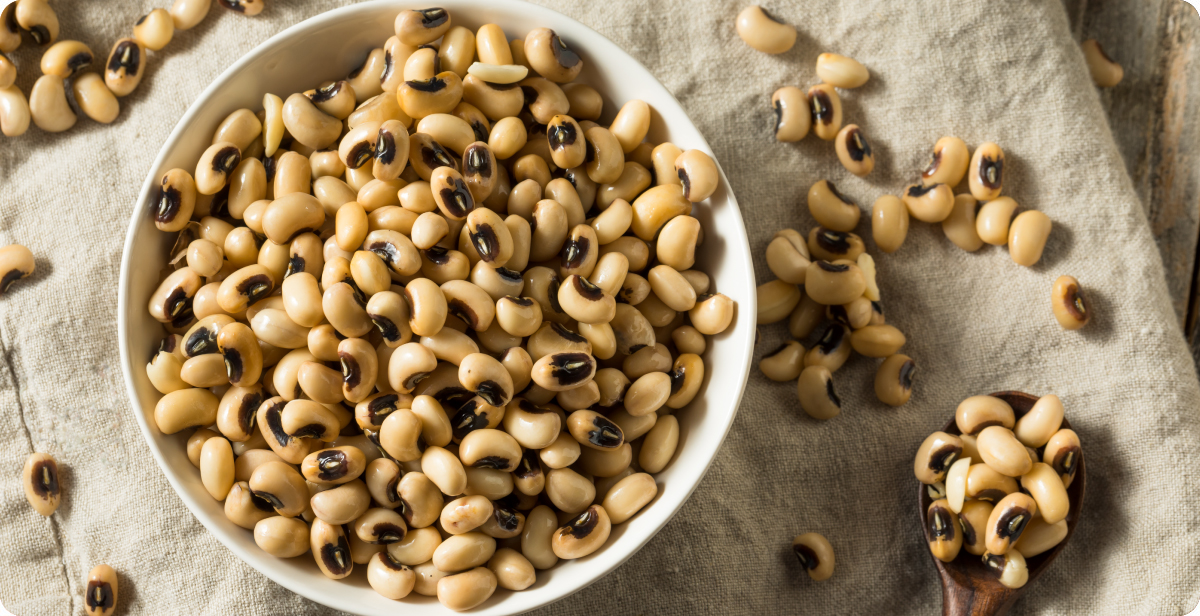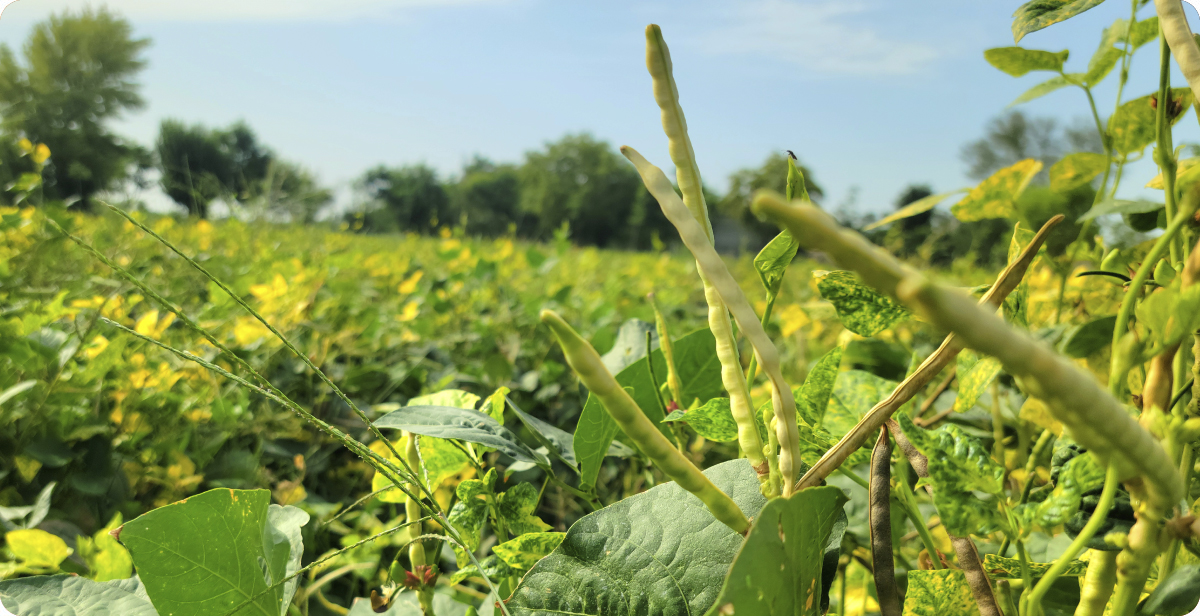January 21, 2025
We launch our series on emerging players with the Nigerian AYB, a local, underutilized crop offering a dense nutritional profile. It shows promise to boost food security, presents significant protein extraction potential, and thrives in poor soil and climate conditions. Food scientist Queeneth Onwuka, currently pursuing her postgraduate degree at the Federal University of Technology, Minna, shares insights from her research, while providing a glimpse into the Nigerian pulse market.


While Nigeria's geopolitical zones have their own, less-common local varieties, black-eyed beans, cowpeas, and brown beans are popular throughout the country.
Nigeria is an agrarian state with a lot of agricultural production that is far from reaching its full potential. One of the reasons I joined this industry is that we, as a nation, are slowly working towards transforming agricultural produce into value-added products. Another significant problem we face is malnutrition, and I feel it is my duty and responsibility to help eradicate this issue through my work.
I am researching how to extract protein from the African yam bean (AYB), a lesser-known pulse with great nutritional value. However, it faces challenges like being hard to cook and having some undesirable flavors. My work aims to maximize AYB’s protein using sustainable methods.
I am finding the best ways to extract protein from AYB by adjusting factors like pH and temperature. Germination, or sprouting, is also explored to make the protein easier to digest and reduce unwanted compounds. I am investigating how sprouting affects the nutritional quality of AYB, enhancing its essential amino acids while lowering anti-nutritional substances. I’m also studying how well AYB proteins mix with other ingredients, which is important for potential uses: these proteins can be added to snacks, shakes, and baked goods; used in meat and dairy substitutes; and boost the nutritional value of staple foods.
Nigeria is segmented into many geopolitical zones, and each one has its own unique food preferences, so one part of Nigeria may not know or have any interest in the pulses consumed by another part. These zones consume their own local varieties that are not common in other parts of the world. Black-eyed beans, cowpeas, and brown beans are common throughout the country.
----------------------------------------------

Food scientist Queeneth Onwuka’s research could be a game-changer for Nigeria’s pulse industry.
All the pulses I mentioned are produced locally. I would love to provide our production numbers; however, despite my best efforts, it has been difficult to collect this data — especially for the lesser-known varieties consumed locally. Regarding exports, the government is working on implementing initiatives and policies that will encourage exports, especially for popular products like black-eyed beans and cowpeas. A few years ago, we tried exporting pulses to Europe but faced rejections due to issues with pesticide residue. Consequently, the government has been collaborating with the Nigerian Exports Promotion Council to push Nigerian pulses into the global market.
One major problem identified in my research is that farmers lack knowledge and education. While they know how to grow these crops, they don’t understand that export products must meet specific limits for pesticide residue and other requirements. Additionally, while farmers know which products suit specific seasons, they often lack education on soil fertility and moisture inspection. Another challenge is that they do not have access to seeds resistant to harsh weather conditions. Many still use traditional farming methods because implementing technological solutions is too expensive for them. We need an influx of appropriate machinery and technology to improve our yields and efficiency.

Pulses grown in Nigeria are primarily produced by smallholder farmers with traditional methods and limited access to modern agricultural technology.
The government is attempting to address these problems; however, a significant issue arises when governments change at the end of their tenures. New administrations often implement policies unrelated to their predecessors', which disrupts progress and negatively impacts the agriculture sector. One positive development recently has been constructing agro-industrial processing zones, which encourage agriculture-related activities based on each region's potential.
One opportunity is our increasing population. Most of Nigeria’s population cannot afford animal protein; therefore, pulses serve as an affordable source of protein. If our farmers receive support from our government in terms of subsidies and education, I believe they have the potential to improve yields significantly enough for us to become self-sufficient while also exporting our local produce.

African Yam Bean / Nigerian agriculture / emerging pulse crops / pulse protein extraction / food security / sustainable farming
Disclaimer: The opinions or views expressed in this publication are those of the authors or quoted persons. They do not purport to reflect the opinions or views of the Global Pulse Confederation or its members.